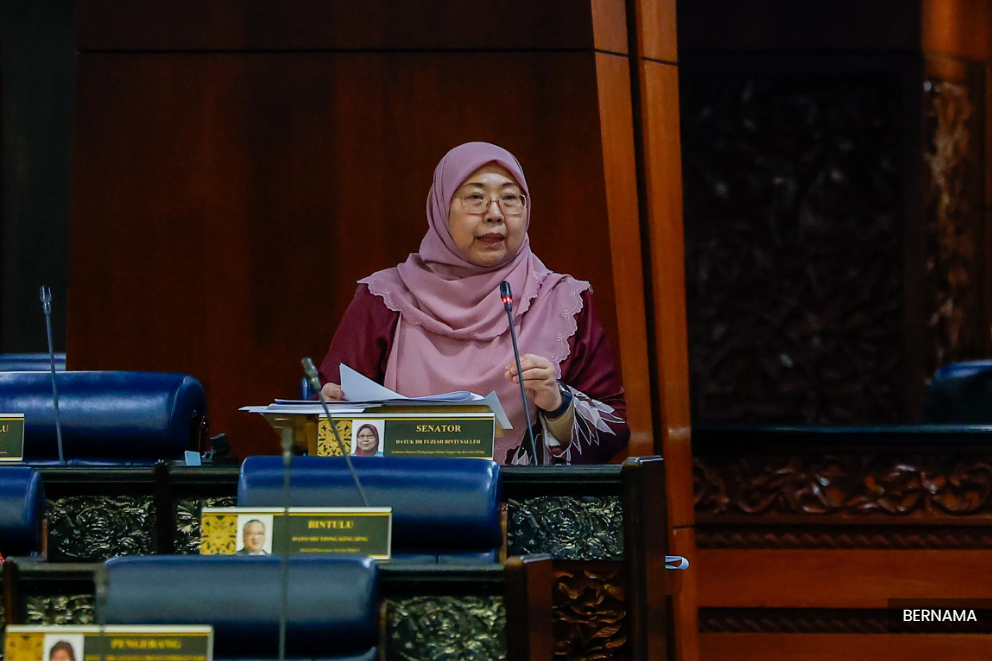KUALA LUMPUR, Nov 26 — Malaysia’s e-commerce revenue from January to September rose by 1.9 per cent year-on-year to RM937.5 billion, said the Statistics Department (DOSM).
Chief statistician Datuk Seri Mohd Uzir Mahidin said the highest e-commerce revenue was recorded in the second quarter (Q2) at RM313.8 billion, before easing slightly to RM312.6 billion in Q3.
“E-commerce is instrumental in driving business activities, widening market opportunities, and advancing Malaysia’s economic competitiveness as the digital landscape evolves,” he said.
Uzir said information and communication technology (ICT) and e-commerce collectively accounted for 23.4 per cent, or RM451.3 billion, of the economy last year, up from RM429.3 billion in 2023.
“This expansion was driven by higher gross value added in the ICT industry, which rose to RM268.7 billion, bolstered by contributions from ICT manufacturing (38.5 per cent), ICT services (40.1 per cent), ICT trade (15.4 per cent), and content and media (6.0 per cent),” he said.
Meanwhile, the Usage of ICT and E-Commerce by Establishments 2024 Report reaffirmed ongoing progress in business digitalisation, with e-commerce income rising to RM1.18 trillion in 2023.
This expansion was led by the manufacturing sector (RM587.3 billion) and the services sector (RM583 billion), alongside continued improvements in construction and agriculture, said DOSM.
Business-to-business (B2B) transactions remained the largest contributor to e-commerce revenue at RM817.1 billion.
“The most notable gains were observed in business-to-consumer (B2C) transactions, which increased to RM336.6 billion, and business-to-government (B2G) transactions, which rose to RM30.4 billion.
“Domestic e-commerce income expanded to RM1.05 trillion, while international income reached RM131.1 billion, underscoring Malaysia’s strengthening role in regional digital trade,” said Uzir.
E-commerce expenditure also increased to RM571.4 billion, driven by both domestic and international transactions.
“B2B transactions remained the dominant expenditure component at RM443.4 billion, while stronger momentum was seen in B2C and B2G expenditure, supported by wider adoption of digital procurement systems and e-payment solutions across businesses,” he said.
Malaysia’s digital ecosystem has also been strengthened by more robust national digital infrastructure, supported by an increase in fixed and mobile broadband subscriptions (49.2 million) this year, alongside expanded 4G (98.8 per cent) and 5G (82.4 per cent) coverage.
Overall, he said the Malaysia Digital Economy 2025 report demonstrates that the country is experiencing a significant leap in digital transformation, driven by steady e-commerce growth, the expanding contribution of the ICT industry, increasing ICT usage across businesses, households and individuals and the strengthening of national communication infrastructure.
“The rapid proliferation of mega-scale data centres, adoption of artificial intelligence (AI), process automation, IoT integration, cloud services and enhanced cybersecurity further reinforce Malaysia’s digital ecosystem.
“This positions the country on a strong trajectory to emerge as an innovative, inclusive and competitive regional hub for data and technology in the global digital economy,” added Uzir.








